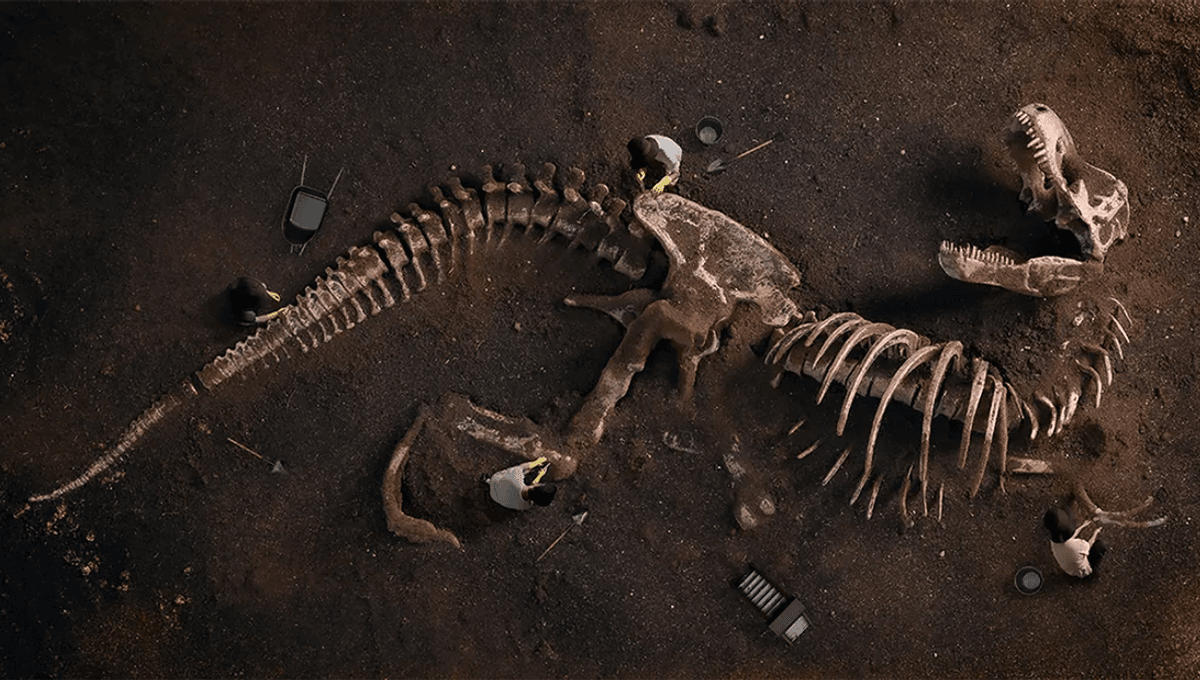
Every now and then a conspiracy theorist asks the question, “If dinosaurs actually existed, wouldn’t their bones be everywhere?”
While it’s odd critical thinking to disregard all the evidence we have that dinosaurs existed because we haven’t found even more evidence that they exist, it is nevertheless a fun question, and one that has been answered many times for anyone who wants to hit up Google before they record a video.
First off, dinosaur fossils have been found on all continents. They aren’t evenly distributed, but that isn’t because of some bizarre conspiracy to plant these bones in Montana. It’s because fossilization is rare, and takes place only under specific circumstances.
When an animal dies, for it to become fossilized, it needs to be buried by sediment before being covered by many more layers of sediment. As the pressure builds up, they are compressed to form sedimentary rock. During the process, minerals seep into the encased animal bones, turning them into stone.
As this requires sediment buildup on top of the animal carcass, almost all the fossils we have found have been in the seas, where the sand and mud can wash over the body. Dinosaurs that die above ground rarely become fossilized.
“Most of the dinosaur fossils we find are from animals that were living near to a lake or river,” Dr David Button, dinosaur researcher at the Natural History Museum explained in a piece on their website.
“Some died shortly before the area flooded and covered their remains in mud and silt. Others were washed into a river by heavy rain.”
It would be great if we could find dinosaurs everywhere. Frustratingly, due to the way fossils are produced, there are likely many, many species that we will never discover.
“We don’t know about many dinosaurs that lived in jungle or mountain environments. Fossils are very unlikely to form in such situations,” Button added.
One study in 2006 estimated that around 71 percent of dinosaurs remained unknown. Some mountainous dinosaurs could, in theory, have been swept down a mountain to a riverbed where fossilization could take place, but it’s not common. As a result, we know little of their unique adaptions.
“While animals in these areas may have had lowland relatives, it’s quite possible there were small clades specialized to environments where they were unlikely to become fossils,” New York Institute of Technology palaeontologist Karen Poole told the Smithsonian.
In short, dinosaurs are found all over the place, but only became fossilized under the right circumstances. The less said about Nephilim, mentioned at the end of the video, the better.
An earlier version of this article was published in September 2023.
Source Link: If Dinosaurs Roamed The Whole Planet, Why Don't We Find Their Bones Everywhere?